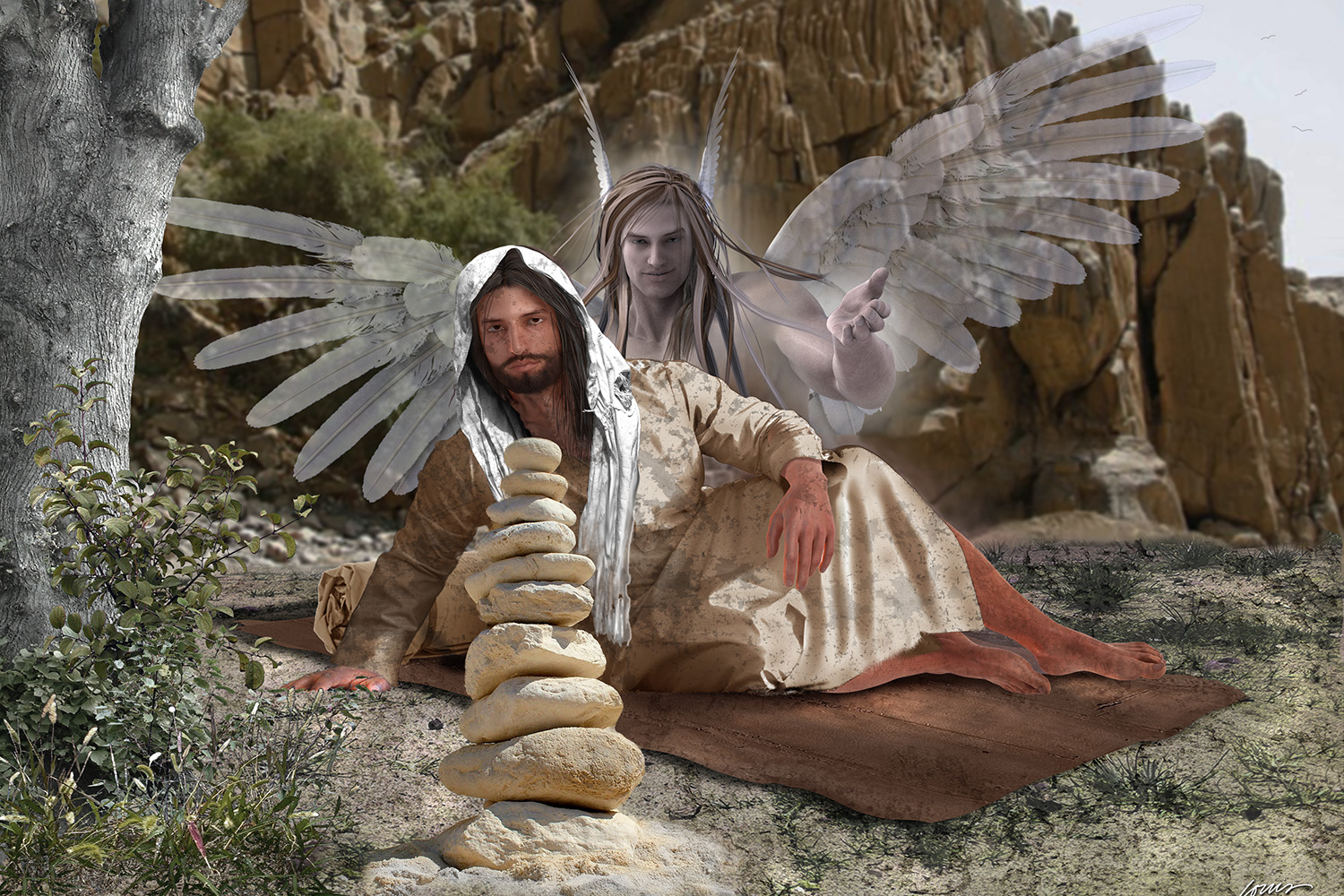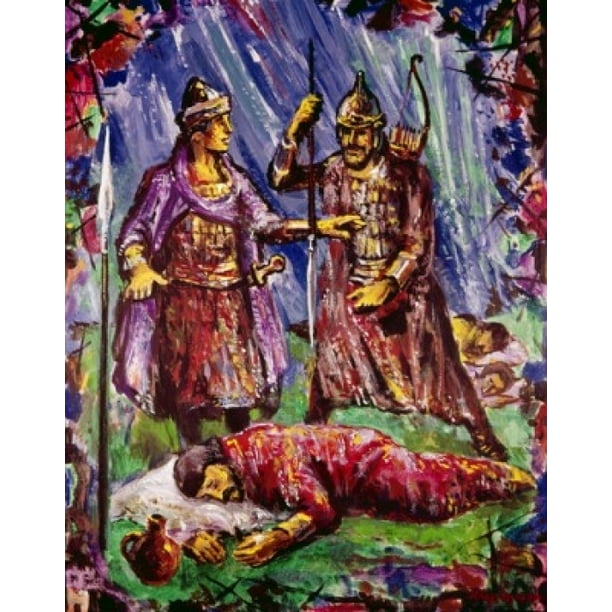 1st Sunday of Lent C
1st Sunday of Lent C
Readings: Deuteronomy 26:4‑10 Romans 10:8‑13 Luke 4:1‑13
The Gospel for the First Sunday of Lent always recounts the devil's temptation of Jesus in the desert before the beginning of his public ministry. This year's readings contrast Jesus' trusting faith in his Father with the worldly illusions of the devil. In this penitential season of Lent, let each of us trust in the Lord by praying: "Be with me, Lord, when I am in trouble" (Ps 91).
A spirit of trusting gratitude marks Moses' instruction for the confession of faith in offering the first fruits of the harvest to the Lord in the Book of Deuteronomy. Israel is to acknowledge that her very existence as a people is a gift from the Lord. When the Israelite farmer presents the basket of first fruits to the priest, he is to recite his people's story by praising the Lord for his “terrifying power” in delivering the ancestors from oppression in Egypt and leading them into the “land flowing with milk and honey.” After presenting the first fruits and bowing down in the Lord's presence, the farmer's whole family is to “make merry over all the good things which the Lord, your God, has given you.”
Paul's reflections in Romans also celebrate faith in God's saving action. In this section of Romans, Paul is struggling with the fact that many of his Jewish brethren have clung to salvation through the Law and have not accepted faith in Christ (see Romans 9‑11). Paul is convinced that in Christ's death and resurrection the way of justification and salvation has been opened for both Jews and Greeks (Gentiles). In our passage Paul is doing a midrash, or a "running commentary," on Old Testament texts to convince his Jewish readers that Christ is the goal or end of the Law. He applies a text from Deuteronomy to Christ. “The word is near you, on your lips and in your heart” (Deut 30:14). This leads to the exhortation to “confess with your lips that Jesus is Lord, and believe in your heart that God raised him from the dead. . .” Paul then continues with a text from the Book of Isaiah: “No one who believes in him will be put to shame” (Isa 28:16). On the basis of this text, Paul argues that both Jew and Greek (Gentile) can find in Christ “the same Lord, rich in mercy toward all who call upon him.” Finally, he concludes his reflections on the salvation available to all in Christ with a joyful quotation from Joel: “Everyone who calls on the name of the Lord will be saved” (Joel 3:5).
Luke's story of the devil's temptation of Jesus in the desert continues today's theme of trusting faith in God. In the background for Jesus’ trial is the text from Deuteronomy 8:2 in which Moses recalls the testing of the Israelites in the wilderness: “Remember how the Lord your God led you for forty years in the wilderness, to humble you, to test you and know your inmost heart‑‑ whether you would keep his commandments or not.” Unlike Israel of old, Jesus, “full of the Holy Spirit” as God's loyal Son and Servant, will pass the devil's tests by being faithful to God.
The temptations are insidious because they appeal to Jesus’ power as “Son of God” and recall the heavenly voice at his baptism where Jesus heard: “You are my beloved Son; with you I am well pleased” (see 4:3,9 and 3:22). Each of the devil's temptations offers an alluring worldly prize, but Jesus repeatedly responds with quotations from Deuteronomy which affirm his faithful trust in God. After his forty day fast Jesus is hungry, and the devil proposes: “If you are the Son of God, command this stone to turn into bread.” Jesus rejects the devil's appeal to squander his power on his own mere physical sustenance by pointing to the spiritual food that comes from being obedient to God's word: “Scripture has it, ‘Not on bread alone shall man live’” (Deut 8:3). When the devil offers him the kingdoms of the world in return for his homage, Jesus repeats the first and greatest commandment of his Jewish faith: “Scripture has it, ‘You shall do homage to the Lord your God; him alone shall you adore’” (Deut 6:13). Finally, the devil leads Jesus to Jerusalem and challenges him to put his Father to the test by throwing himself from the parapet of the temple and demanding that as the Scripture says “He will bid his angels watch over you . . .” (Ps 91:11‑12). But Jesus rejects the devil's presumptuous challenge to God with the simple statement of trust drawn from the lessons of his people's wilderness traditions: “It also says, ‘You shall not put the Lord your God to the test.’” As we begin our Lenten journey of fasting and penance, let the faithful and trusting Jesus be our guide.

